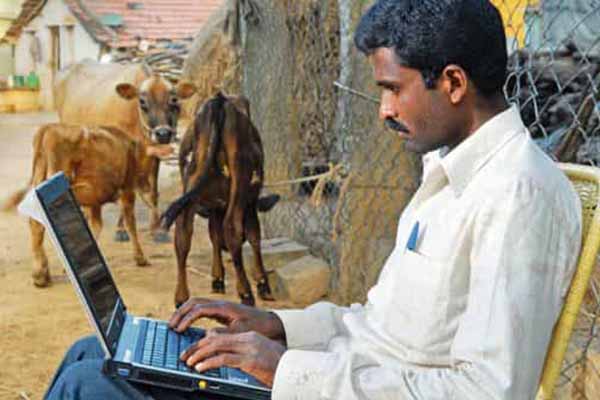As the digital era progresses, the Internet has become one of the essential components of our lives. With the advent of the Internet, the globe has shrunk to the size of a town. As a result, there is some real irony in that, owing to internet connectivity, more and more communities are becoming worldwide. As the world moves toward holistic and integrated tech-led lives, India’s promise of increasing internet availability is a welcome reality. It has improved connectivity between the country’s regions, territories, and unstructured areas.
The Internet is easily accessible. Nonetheless, the old dial-up connection is no longer adequate in a world where speed and staying ahead of the competition are vital to success. This is where the intriguing world of broadband comes into play. If the tremendous speed provided wasn’t enough, internet services are now available at cheaper rates than ever before, indicating that it is an essential facilitator for changing the economic scenario of Tier 2 and 3. Broadband has benefited growing cities in their hunt for services, resulting in increased growth and opportunities.
According to a McKinsey report, the Internet has contributed 21% of GDP growth in industrialized nations during the previous five years. Furthermore, while large corporations and national economies have benefited significantly from the Internet’s enabling influence, individual customers and small startup businesses have been among the most noticeable beneficiaries. Despite this, we are still in the early stages of the Internet’s revolution and potential.
Many additional technological improvements and supporting capabilities, such as payment systems, are expected to develop as the capacity to connect and engage many more people grows exponentially. As a result, governments, legislatures, and businesses must recognize and embrace the potential broadband may offer while also striving to address the Internet’s security and privacy issues. As the Internet’s growth over the last two decades has demonstrated, creating a healthy broadband ecosystem that improves infrastructure and access generates a competitive environment that benefits users while allowing innovators and entrepreneurs to thrive and cultivate human capital. When these factors are combined, they have the potential to increase the Internet’s long-term impact on economic development and prosperity.
The impact on the economy
Due to its ability to transform our way of life, broadband has become an increasingly important component of everyone’s daily lives. Broadband has dramatically improved many aspects of life, including business, education, health care, governance, and other social services. This is also the cornerstone of India’s knowledge-based economy, allowing for the development of human capital, digital literacy, and effective resource management. It encourages MSME involvement in digital buildings by stimulating market growth, enhancing quality, and making online transactions easier.
The impact of broadband speeds on a country’s economy has received attention. According to the expert study, doubling broadband speeds would increase GDP over the previous year. Assuming that this minor factor remains constant across developed and developing countries, India can expect to add at least $7.4 billion to its nominal GDP by doubling current average speeds.
Increased internet speeds would have both direct and indirect economic consequences. Infrastructure deployment and retrofitting would be directly influenced by rate-hiking initiatives. At the same time, indirect network externalities would help other sectors of the economy. Faster data transfer rates will be essential for creating and succeeding with new digital apps and whole digital business models. A change to the definition of broadband assures that many consumers of low-speed internet plans will move to higher offerings. Such an endeavor would generate jobs and have a virtuous circle effect on economic productivity and wealth growth. Without the proper speed, the buzzword broadband is a misnomer.
All the Way Around
Despite its size and scope, broadband technology is still relatively new. However, there are numerous opportunities because the country is expanding faster than ever. As people and things become more connected, we expect new technologies to continue shaping the landscape of possibilities. In general, as we enter a new era, technological advancements and the support of governmental and corporate institutions will help to alter the economic landscape in Tier 2 and Tier 3 areas.
About the author:

Gurdeep Singh is the chairman of Jujhar Group.















